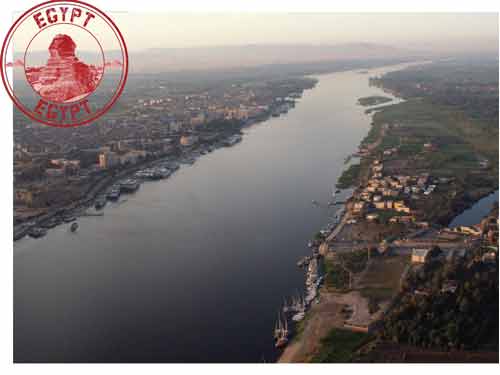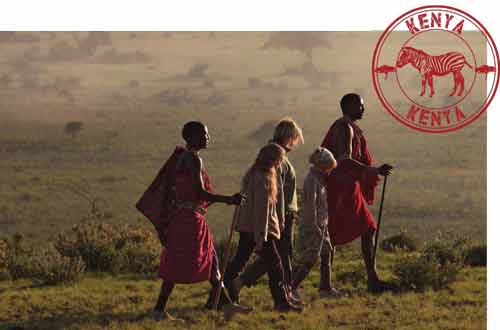Egypt tries to convince tourists it’s safe, says Greg Lowe, who finds it’s not such a bad time to visit now. Hannah Koh talks to a Kenyan safari operator that is seeing more Asian clients

Still open for business
Egypt’s tourism trade has been in the doldrums ever since a popular uprising, which saw deadly clashes between pro-democracy demonstrators and security forces, and ousted Hosni Mubarak and his military government from power in February 2011. Political turbulence and fragile security have shrouded the country ever since, making Egypt a tough destination to sell.
These dynamics compounded by a raft of travel advisories for Egypt and a resurgence in violence early this year, including a bomb attack on a coach which killed three South Korean holidaymakers, have seen tourism arrivals decline.
International visitors fell by 28.9 per cent year-on-year to 642,197 in January 2014, a 39 per cent slide from one million in January 2010, according to most recent data from Egypt’s Central Agency for Public Mobilization and Statistics. Eastern Europe, Western Europe and the Middle East were the leading markets, respectively.
Sheryl Lim, regional director Asia at Insight Vacations, said: “We have cancelled all our Egypt departures from April 1, 2014 until August 31, 2014. This decision was made in light of the deterioration of security on the ground in Egypt in late January.”
In a bid to reverse the trend, both the public and private sectors are taking steps to promote travel to parts of the country which have remained relatively untouched by the turmoil, such as Sharm el Sheikh and much of the Nile Valley.
Direct flights from Paris, London and Istanbul to Luxor, Hurghada and Sharm el Sheik started on March 1, enabling groups to bypass Cairo and head straight to key destinations.
“Nile cruises have started operating again in a more regular way,” said Karim ElMinabawy, president of Emeco Travel, one of Egypt’s leading DMCs. “With more vessels available, it is easy to tailor the programme to meet clients’ needs.
“Marsa Alam by the Red Sea and southern Hurghada continue to operate in much the same way as prior to the revolution. Alexandria by the Mediterranean continues to be very popular for visitors coming from Asia as well as from the West.”
ElMinabawy said tourist police and travel companies ensure tourists are not taken close to potential flashpoints in the capital, such as Cairo University and Al Azhar University, where students stage fairly frequent protests. A law banning demonstrations which have not been approved by authorities was also passed late last year.
Meanwhile, the Ministry of Tourism and Egypt Tourism Authority have implemented a number of initiatives to lure travellers to the country. These include subsidies for charter flights to resorts on the Red Sea, such as Sharm el Sheikh, Hurghada and Marsa, as well as El Alamein on the Mediterranean, with the level of subsidy depending on the length of the flight and the number of passengers.
Measures have also been taken to ease the burden of travel to Egypt. Visitors from the European Union and US can now purchase visas on arrival. Indians can do the same, as long as they have an official letter from a local travel agency which is arranging their tours within the country. Authorities are planning to expand the scheme to include South Africans as well.
More fam trips for both agencies and media, especially those from Europe, have been organised.
“We’re also busy holding seminars and on-the-job training for staff to ensure that the whole trade is well-equipped and ready for when arrivals get back to normal,” added ElMinabawy.

Into the wild
More Asian travellers are ditching high-rise metropolises and its creature comforts to take a walk on the wild side in Kenya for their holidays. While absolute numbers remain small, the rate of increase suggests that there is still plenty of room to grow.
Julia Mut, marketing manager for Cheli & Peacock that operates and/or markets a total of seven safaris within Kenya, said the Australasia market has grown “immensely”. Customers come mainly from Hong Kong, Singapore, the Philippines and China, while traffic from Japan and South Korea is picking up.
“The latest figures (from our properties) show a 400 per cent growth in number of pax from 2010 to 2013, from 75 pax in 2010 to 308 pax in 2013, while revenue has grown more than six-fold in the same time, meaning that not only more people from Asia are coming to Kenya, but they also spend more on their safaris,” she said.
Cheli & Peacock’s portfolio covers six destinations within Kenya, but the Masai Mara (Cottar’s 1920s Safari Camp and Elephant Pepper Camp) and Amboseli (Tortilis Camp) are more popular with Asians due to their fame and the fact that most promotions in Asia are centred around these areas, “so we are trying to promote other areas as well,” said Mut.
“One of the things about Asians is they are quite active as compared to other markets. In other markets they are quite happy to sit in a game drive vehicle in the morning to the evening. But with Asian clients, they like to experience things. So they’ll go on a walk in the morning and a drive in the evening, and they will do a night game drive and go for camel riding in the morning.”
To further promote Kenya and safari camps to the Asian market, Cheli & Peacock is arranging several press trips for Asian media this year.
Stefano Cheli, founder and managing director of the company, will also be travelling to Asia for a sales trip in September to visit Cheli & Peacock’s main partners in Hong Kong and Singapore as well as hold presentations, training sessions and a few press events, shared Mut.
“We did one of these trips back in 2011, after which the interest for Kenya from the region started growing, so we feel confident that yet another trip will bring lots more business in 2014 and 2015,” she said.
Cheli & Peacock also takes pride in being a champion of sustainable tourism. With a motto to ‘take only pictures, leave only footprints’, its camps are environmentally friendly and located in conservancies or national reserves. Local communities are supported through bed night levies, leasing agreements and education initiatives.
Additional reporting from Greg Lowe




















